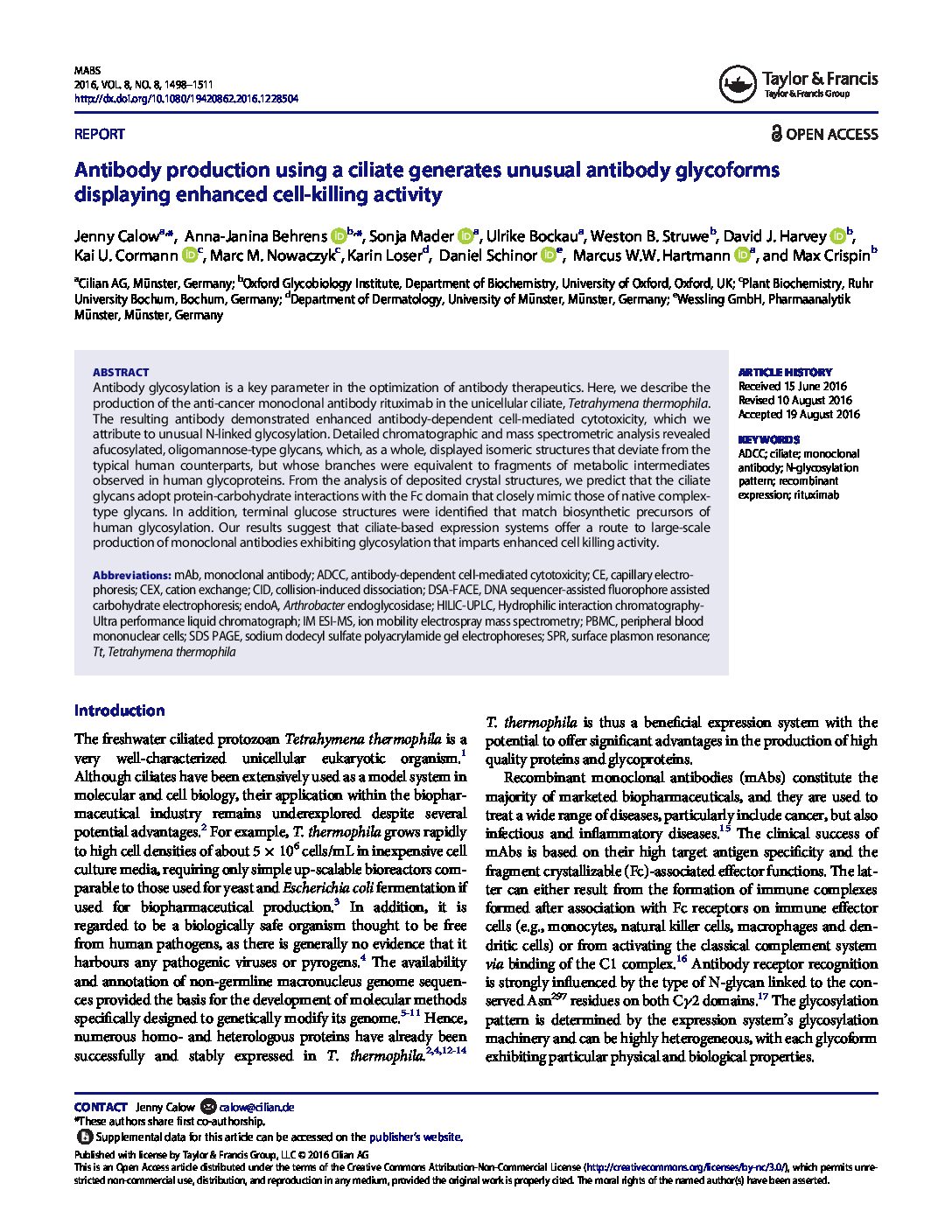
Antibody production using a ciliate generates unusual antibody glycoforms displaying enhanced cell-killing activity
Antibody glycosylation is a key parameter in the optimization of antibody therapeutics. Here, we describe the production of the anti-cancer monoclonal antibody rituximab in the unicellular ciliate, Tetrahymena thermophila. The resulting antibody demonstrated enhanced antibody-dependent cell-mediated cytotoxicity, which we attribute to unusual N-linked glycosylation. Detailed chromatographic and mass spectrometric analysis revealed afucosylated, oligomannose-type glycans, which, as a whole, displayed isomeric structures that deviate from the typical human counterparts, but whose branches were equivalent to fragments of metabolic intermediates observed in human glycoproteins. From the analysis of deposited crystal structures, we predict that the ciliate glycans adopt protein-carbohydrate interactions with the Fc domain that closely mimic those of native complextype glycans. In addition, terminal glucose structures were identified that match biosynthetic precursors of human glycosylation. Our results suggest that ciliate-based expression systems offer a route to large-scale production of monoclonal antibodies exhibiting glycosylation that imparts enhanced cell killing activity.
